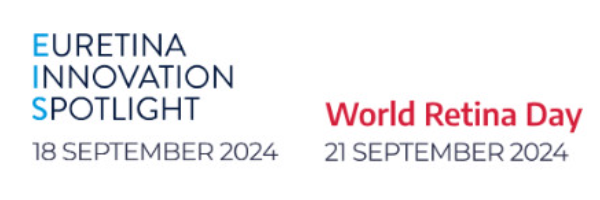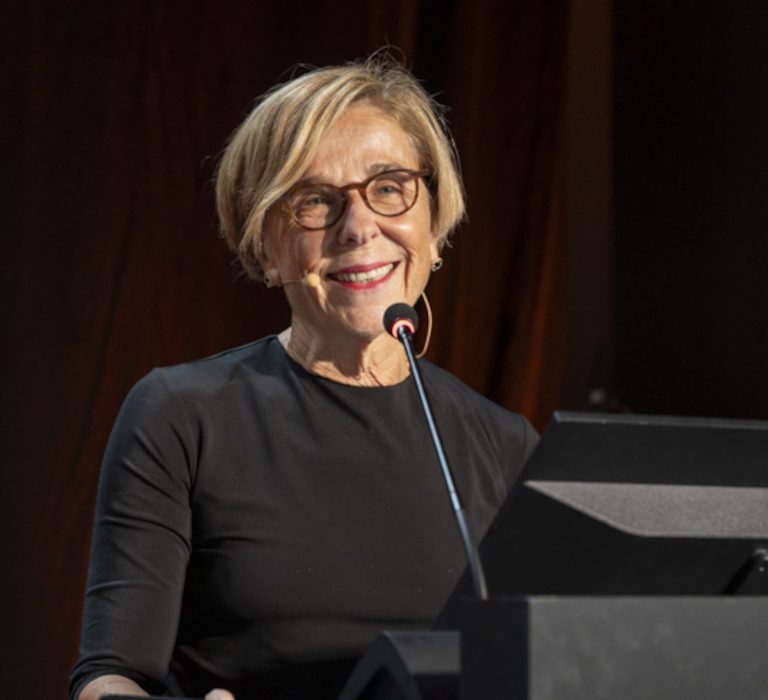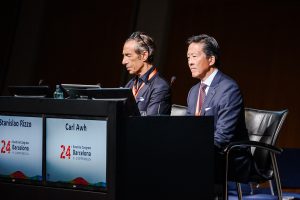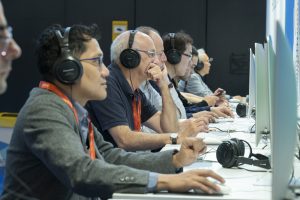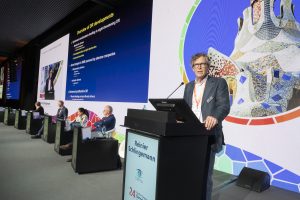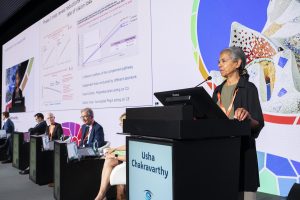The second annual EURETINA Innovation Spotlight (EIS) held on Wednesday afternoon was a sell-out event, welcoming attendees who learned about the latest innovations in retina from the involved stakeholders.
Welcoming attendees, Prof Anat Loewenstein, Euretina president, said “I cannot express enough how excited I am to open this session. I am sure it is a real pleasure for those who joined us last year and for those who are here for the first time to be part of this exciting meeting talking about innovation.”
“Whether we are physicians, investigators, researchers, pharma or other industry, we all want to contribute to development and advancement, and we all want and realise we need to work together to push the field of retina care forward.” Prof Loewenstein also thanked the companies sponsoring EIS. “Without their generous contributions, this meeting would not have been possible,” she said.
Prof Martin Zinkernagel, Euretina General Secretary, also welcomed attendees, but noted that the excitement of getting the meeting started was tempered by the loss of Prof Ramin Tadayoni earlier in the year. “Ramin was instrumental in setting up the EIS meeting. He was passionate about innovation and the advancements in retina,” said Prof Zinkernagel, and he asked everyone to pause for a moment of silence to remember Prof Tadayoni.
Then the EIS got underway. The programme was divided into seven sessions covering a full spectrum of innovations in the field of retina, comprising both recently available modalities and those still in the investigational pipeline. The innovations included a host of medical/biological therapies, gene therapies, diagnostic and surgical devices, and artificial intelligence (AI)-based approaches. Covered applications ranged from large market indications, such as age-related macular degeneration (AMD) and diabetic eye diseases, to orphan diseases.
The programme included two sessions dedicated to innovations for non-neovascular AMD and inherited retinal dystrophies (IRDs) and two sessions focusing on treatments for VEGF-related and other retinal indications. Innovations in retinal surgery, imaging, and AI were featured in a fifth session, and a variety of new and emerging diagnostic, treatment, and research tools were highlighted in a sixth “rapid fire” session.
More than 30 presentations were discussed during these six sessions, and each presentation was delivered by a high-level executive of the company discussing clinical strategy, business strategy and competitive landscape. Each session concluded with time for audience questions and further discussion during which an expert panel comprised of company executives and retina specialists offered thoughtful perspectives on the presented data.
A seventh session in the EIS programme featured an investor panel session during which representatives from renowned venture capital firms spoke about their underlying thought process and business strategy for deciding whether to financially support a company or a new product. They also shared advice for prospective innovators.
“Industry and audience interest and enthusiasm for the second EIS was very strong and the organising committee was excited to put together an outstanding agenda with these superstar speakers, key opinion leaders. and panelists,” said Kourous Rezaei, MD, a member of the organising committee.
“The breadth and spectrum of the programme speaks for itself. EIS is becoming a cornerstone of the EURETINA meeting.”
Importantly, EIS also provided a networking forum for innovators, company executives, physicians, and investors to network and share ideas. “This summit gives all of us, wherever we come from, the ability to exchange knowledge and ideas, connect, and start collaborations,” said Prof Loewenstein.
Nicole Eter, MD, Euretina Presidentlect provided closing remarks. On behalf of the entire Euretina board, she thanks attendees and participants for their contribution to the EIS meeting.
“I think your presence and participation contributed significantly to the success of this event. Our special thanks goes to the speakers from industry. Without their support, the conference would not be so successful. You enriched the programme with your inspiring presentations and exciting discussions, and your expertise and commitment have made this conference a success,” said Dr Eter.
She added, “Last but not least, our thanks go to the organising team whose careful planning and implementation ensured that this year’s EIS ran smoothly. We hope you all gained valuable insights and new contacts, and we look forward to welcoming you again next year.”
